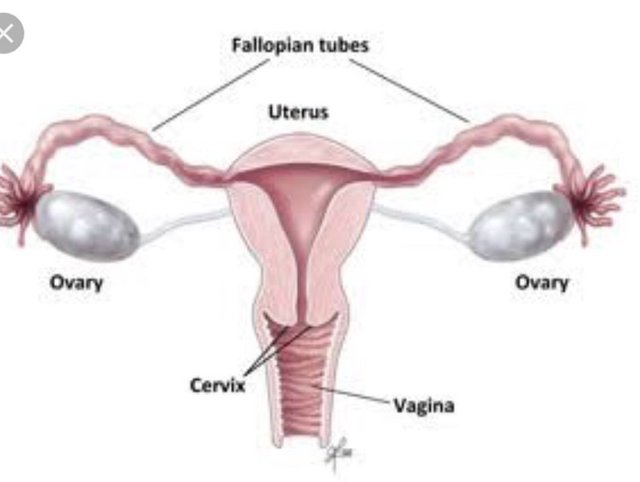Complete study about menstruation
Menstruation can be confusing, just like a lot of the other changes that come with puberty. Some girls can’t wait to start their periods. Others may feel afraid or anxious. Many girls (and most guys!) don’t have a complete understanding of a woman’s reproductive system or what actually happens during the menstrual cycle. That can make the process seem even more mysterious.

Your menstrual cycle is part of your body’s way of preparing for a possible pregnancy each month. Understanding how the process works is important, since you can use this information to help to either get pregnant or avoid getting pregnant, to better manage any menstrual symptoms you are experiencing, and understand when there might be a problem.
Menstruation is a monthly shedding of a female’s uteral lining; it lasts about 3 to 5 days (average) and contains blood and tissue that exits her body through the cervix and vagina – the first day of menstruation is the first day of your period.
Most periods vary somewhat, the flow may be light, moderate or heavy and can vary in length from about 2 to 7 days; with age, the cycle usually shortens and becomes more regular
Problems with periods include the following: amenorrhea (no period), dysmenorrhea (painful period), and abnormal bleeding.
Menstrual cycle
When periods (menstruations) come regularly, this is called the menstrual cycle. Having regular menstrual cycles is a sign that important parts of your body are working normally. The menstrual cycle provides important body chemicals, called hormones, to keep you healthy. It also prepares your body for pregnancy each month. A cycle is counted from the first day of 1 period to the first day of the next period. The average menstrual cycle is 28 days long. Cycles can range anywhere from 21 to 35 days in adults and from 21 to 45 days in young teens.
The rise and fall of levels of hormones during the month control the menstrual cycle.

Periods usually start between age 11 and 14 and continue until menopause at about age 51. They usually last from three to five days. Besides bleeding from the vagina, you may have
Abdominal or pelvic cramping pain
Lower back pain
Bloating and sore breasts
Food cravings
Mood swings and irritability
Headache and fatigue
When a girl first gets her period, doctors call it menarche . Menarche doesn’t happen until all the parts of a girl’s reproductive system have matured and are working together.
Normal bleeding
There is a range of normal bleeding – some women have short, light periods and others have longer, heavy periods. Your period may also change over time.
Normal menstrual bleeding has the following features:
Your period lasts for 3–8 days
Your period comes again every 21–35 days (measured from the first day of one period to the first day of the next)
The total blood loss over the course of the period is around 2–3 tablespoons but secretions of other fluids can make it seem more
Common signs and symptoms include
acne, tender breasts, bloating, feeling tired, irritability, and mood changes.These may interfere with normal life, therefore qualifying as premenstrual syndrome, in 20 to 30% of women.In 3 to 8%, symptoms are severe.
methods used during periods for safe menstruation Pads, Tampons, and Liners
Once you begin menstruating, you’ll need to use something to absorb the blood. Most girls use a pad or a tampon. But some use menstrual cups, which a girl inserts into her vagina to catch and hold the blood (instead of absorbing it, like a tampon).
There are so many products out there that it may take some experimenting before you find the one that works best for you. Some girls use only pads (particularly when they first start menstruating), some use only tampons, and some switch around – tampons during the day and pads at night, for example.
Girls who worry about leakage from a tampon often use a pantiliner, too, and some girls use liners alone on very light days of their periods.
Periods shouldn’t get in the way of exercising, having fun, and enjoying life. Girls who are very active, particularly those who enjoy swimming, often find that tampons are the best option during sports.
If you have questions about pads, tampons, or coping with periods, ask a parent, health teacher, school nurse, or older sister,or you can read my blog for full information.
Worried time or can say when should go to doctor
You have not started menstruating by the age of 15.
You have not started menstruating within 3 years after breast growth began, or if breasts haven’t started to grow by age 13.
Your period suddenly stops for more than 90 days.
Your periods become very irregular after having had regular, monthly cycles.
Your period occurs more often than every 21 days or less often than every 35 days.
You are bleeding for more than 7 days.
You are bleeding more heavily than usual or using more than 1 pad or tampon every 1 to 2 hours.
You bleed between periods.
You have severe pain during your period.
You suddenly get a fever and feel sick after using tampons.
Question asked by you to doctor about periods
You may be worried about whether your period is normal in other ways. This is normal when a girl first gets her period and isn’t sure what to expect. Your doctor or nurse can answer any questions about your period. Here are some times it’s especially important to talk to a doctor or nurse if:
your period lasts longer than a week
your blood soaks thorough more than one pad every 1 – 2 hours
you go longer than 3 months between periods
you have bleeding in between periods
you have an unusual amount of pain before or during your period
your periods were regular then became irregular
Dr. Shivani Bhardwaj